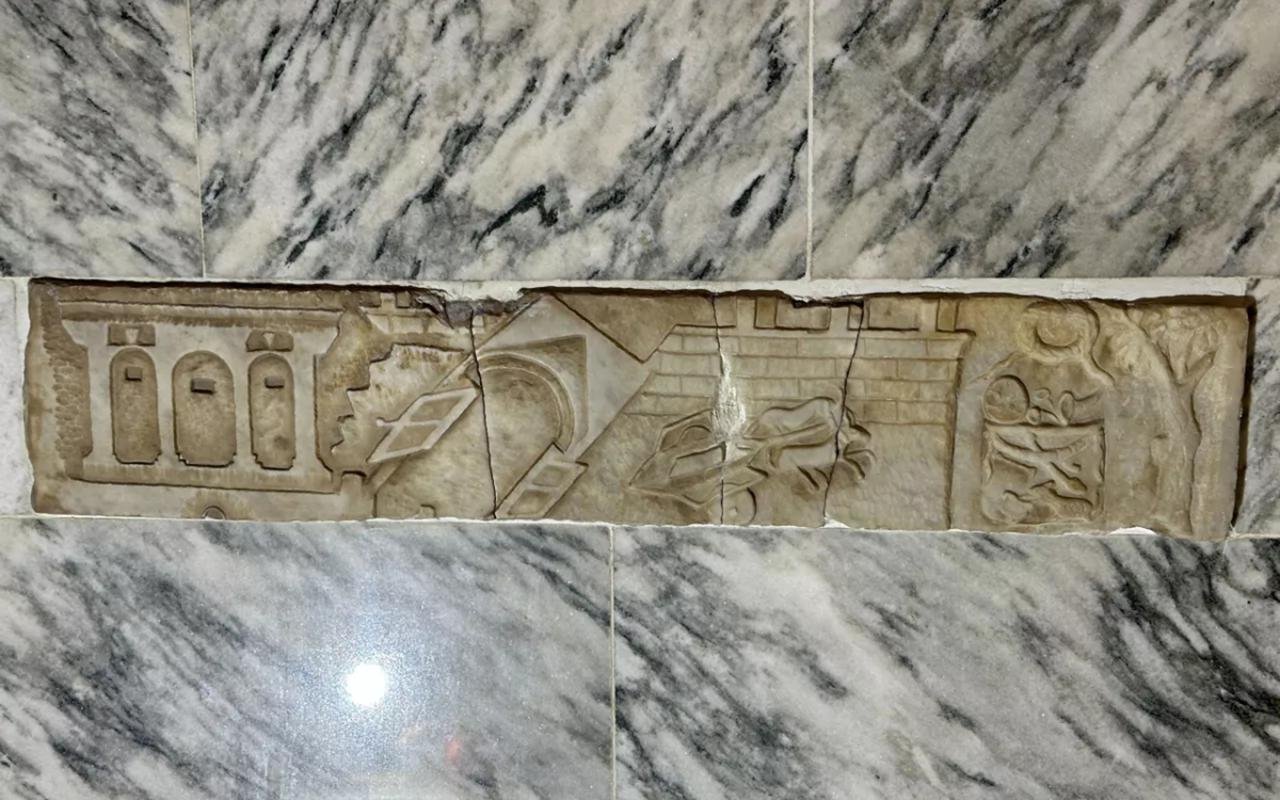A long-lost treasure stolen from the ancient ruins of Pompeii has been recovered in a family home in the quiet village of Herzele, East Flanders, Belgium.
The artifact, a marble relief dating back to approximately 62 CE, depicts the catastrophic earthquake that struck Pompeii that same year, notably illustrating the collapse of the city’s gates.
 A marble relief from ancient Pompeii, Italy, that depicts the earthquake of 62 CE was found in the basement of a Belgian house. Credit: de Temmermans
A marble relief from ancient Pompeii, Italy, that depicts the earthquake of 62 CE was found in the basement of a Belgian house. Credit: de Temmermans
The unsuspecting homeowners, Raphael De Temmerman and his son, Geert De Temmerman, shared the story of how the artifact came into their possession during a family vacation to Italy in 1975. An anonymous man near Pompeii offered the family the artwork, and unaware of its historical significance, they installed it in their home as a decorative feature.
As the family prepared to sell their house, curiosity about the marble’s value led them to seek professional ᴀssistance. Experts from the local Gallo-Roman Museum in Tongeren were astonished to discover the authenticity of the artifact.
Bart Demarsin, the museum’s head of exhibitions, confirmed the match with another piece depicting the same earthquake, both of which were once part of a house in Pompeii owned by a banker over two millennia ago.
“When they started shining a flashlight on it, I heard them exclaim, ‘Yes, it’s genuine,’ and they nearly fell over,” recounted Geert De Temmerman.
The marble relief, stolen on July 14th, 1975, had been missing for half a century. An Christiaens, deputy mayor of culture for Tongeren, stated: “It’s the cultural heritage from Pompeii, and it belongs there.” Plans are underway to reunite the recovered piece with its companion in Pompeii’s Antiquarium after further research confirms its authenticity.
The discovery has prompted local police to launch an investigation into how the stolen treasure ended up in the De Temmerman family home. Geert De Temmerman expressed the family’s hope for potential compensation, considering the artifact hung undisturbed for five decades.
 Credit: de Temmermans
Credit: de Temmermans
“The judicial police told us we might still be able to get compensation. After all, the piece hung here for 50 years without anything happening to it. It could so easily have been sold on or broken,” explained Geert De Temmerman.
Pompeii, an ancient Roman town-city near modern Naples in Italy, faced its demise during the catastrophic eruption of Mount Vesuvius in 79 CE. Despite the tragedy, Pompeii’s ruins were rediscovered in 1748. The city now stands as a significant archaeological site and tourist attraction, freezing a snapsH๏τ of Roman urban life in time.





